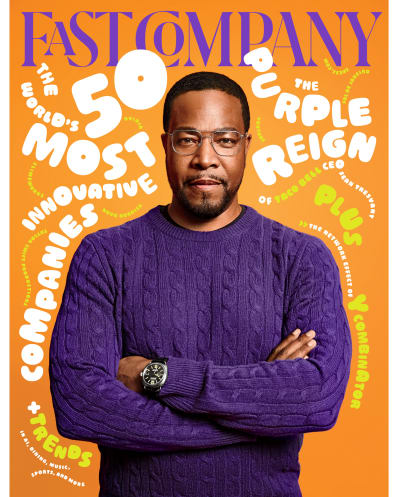Climate change s impacts, though well documented, can sometimes seem abstract. How do you grasp the number of greenhouse gas emissions, or relate to changes happening on the other side of the world?
But climate change is having direct, tangible impacts on our food. Michael Hoffmann, a Cornell professor who focuses on the relationship between climate change and food, has a phrase he likes to say when giving talks on the subject: Melting glaciers are bad enough, but the loss of coffee is downright terrifying.
Coffee is one of the most popular beverages in the world, and its relationship with climate change is twofold: Not only does coffee production negatively impact the environment but climate change is also threatening the existence of coffee. Growing coffee is linked to deforestation and soil degradation, and by one estimate, it takes 140 liters of water, or about 37 gallons, to produce just one cup of joe. By 2050, climate conditions like rising temperatures and droughts are expected to cut the area suitable for growing coffee in half.
In the book he coauthored, Our Changing Menu: Climate Change and the Foods We Love and Need, Hoffmann makes the point that if you love your coffee, you have to reduce your greenhouse gas footprint. In the meantime, for their part some companies are starting to work on coffee alternatives, or bean-less brews.
Maricel Saenz, founder and CEO of Minus Coffee, is from Costa Rica, where coffee has always been popular and important, a way to connect with her cultural roots, or with friends and colleagues. I don t want to live in a world without coffee, she says, noting that she s working on a replacement that still provides a genuine coffee experience.
When she started Compound Foods, the parent company of Minus, Saenz wanted to use biotech tools to address climate change and produce foods more efficiently. Coffee seemed like the ideal target, she says.
Instead of growing, processing, roasting, and brewing beans, Minus Coffee makes a bean-less product through fermentation. The company uses upcycled ingredients including chicory roots, date seeds, and legumes like lentils roasting them, grinding them, and then brewing them in a fermentation batch with caffeine, to create a coffee-like blend. Working with food and fermentation scientists, the team at Minus studied the coffee microbiome from different places around the world to understand the conditions the coffee grows in and to help develop flavors.
[Our scientists] are really trying to come at it from a research angle, understanding how do we develop these flavors, what makes coffee coffee, and then how do we re-create that using inputs that are low impact on the environment and [with] fermentation, Saenz explains. Fermentation is a proven technology in the food space used to transform flavors, which, she says, allows Minus to have versatility with what it can develop.
Fermentation plays a part in making regular coffee, too, and to Hoffmann (who has no association with Minus Coffee), the process to create a coffee alternative in this way makes sense. Coffee is just a bunch of chemicals, so to speak, he says. There are compounds that give us that amazing flavor and aroma, and in part it s fermented, so it s logical if you wanted to turn to lentils and dates and ferment them in just the right way to get similar flavors and aroma. A big advantage, he adds, is that the beans aren t being transported, and the crops can be grown locally, reducing the product s carbon footprint.
Minus says that its coffee uses 94% less water and creates 91% fewer greenhouse gas emissions than traditional coffee. Its cold brew (its only current product, although there are plans to expand) is produced with date seeds, chicory, sunflower seeds, carob, lentils, and grapeseeds (plus caffeine).
In October 2022, Minus did a beta launch, driving a food truck around San Francisco, where the company is headquartered; handing out samples; and selling cans of cold brew. According to a Minus survey, 95% of those customers rated the bean-less coffee as better than their regular brew. When Minus launched a limited-edition online release in November, it sold out of more than 1,700 cans within 24 hours. The company has raised $5.3 million and plans to launch commercially later in 2023.
Minus Coffee isn t the only bean-less brew in the works. Atomo is another company working on coffee-less coffee, and it has a similar taste-test story. When it gave out samples of its brew to about 30 University of Washington students, 70% of them preferred Atomo over Starbucks, according to the company. Atomo also makes canned cold brews, and says its product uses 94% less water and produces 93% fewer carbon emissions compared to conventional cold brew. Voyage Foods also plans to develop a bean-less coffee (it s already creating other food alternatives, including a peanut-free peanut butter and chocolate-free chocolate, other crops threatened by climate change).
Will people be wary of coffee alternatives or hesitant to try a bean-free brew? Saenz isn t worried. One of the reasons we thought coffee is a good start is because people are used to trying coffee in a bunch of different ways, she says. People even drink cat poop coffee, she notes. There is a willingness to taste and try new products, so our goal is that we can hopefully become that gateway of giving people an opportunity to try our product that is high quality and . . . encourage them to make that jump.
 Be in the Know. Subscribe to Fast Company Newsletters.Privacy PolicyVideoTech
Be in the Know. Subscribe to Fast Company Newsletters.Privacy PolicyVideoTech






 [Photo: Minus]
[Photo: Minus]